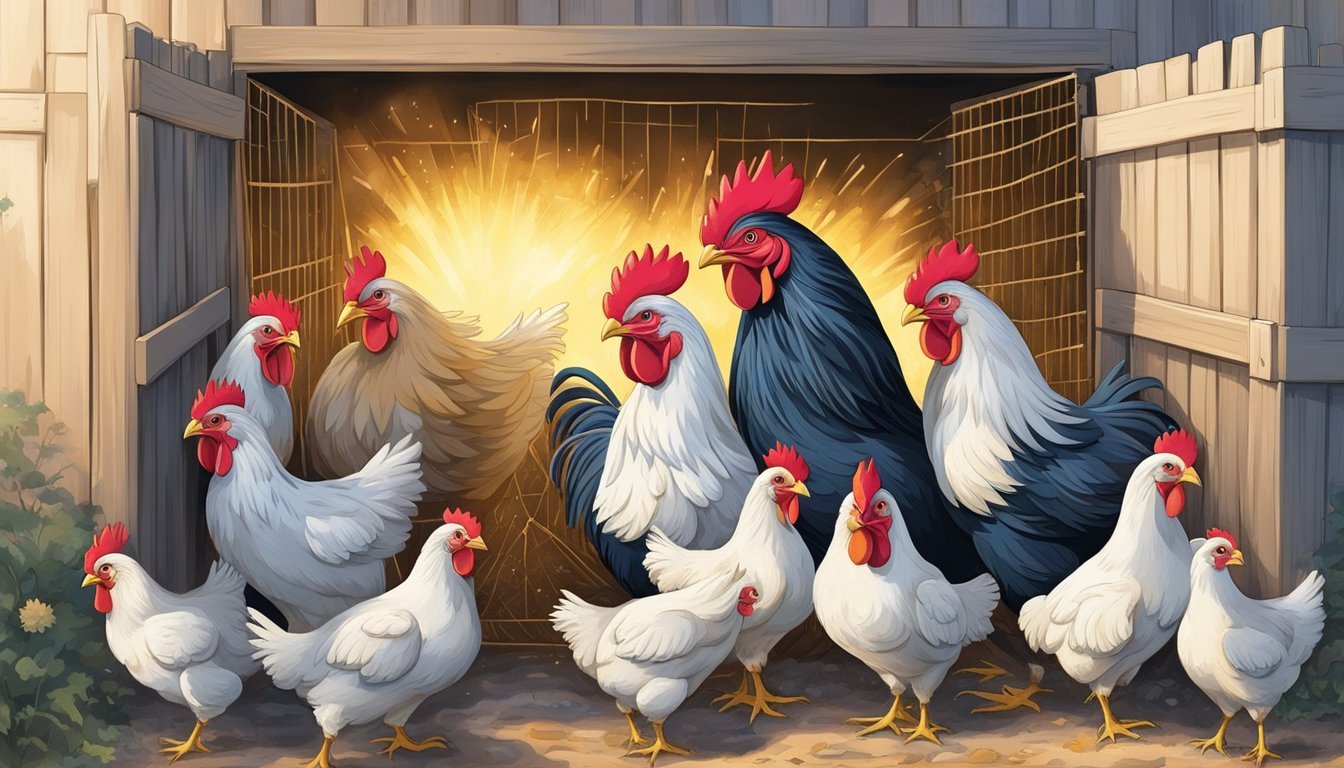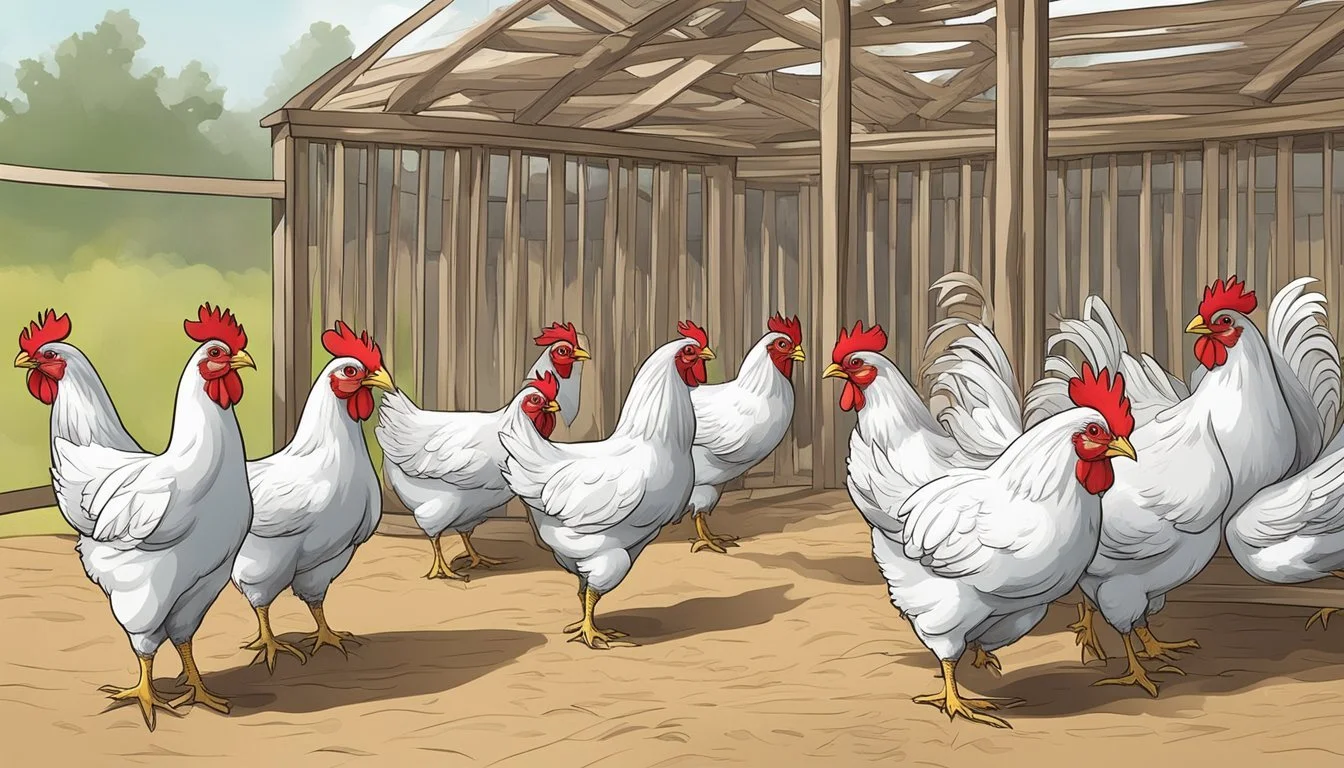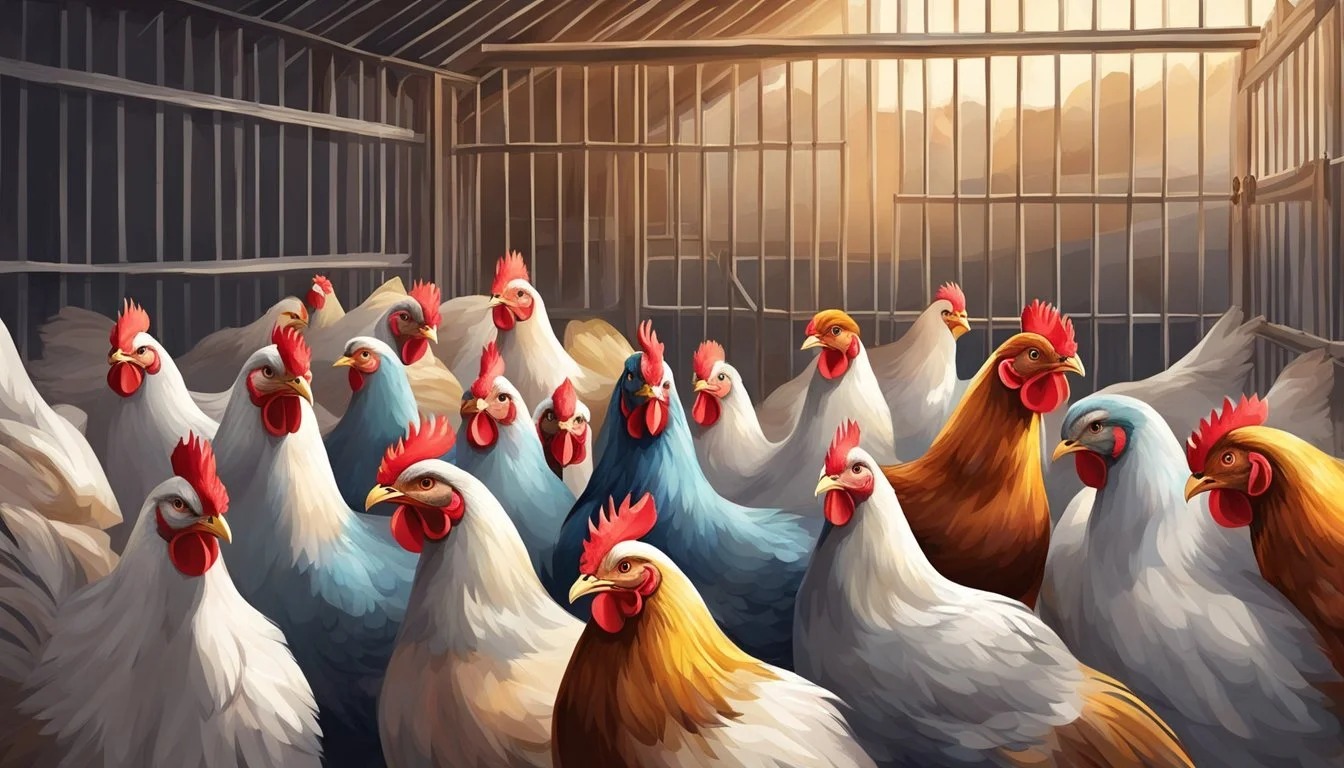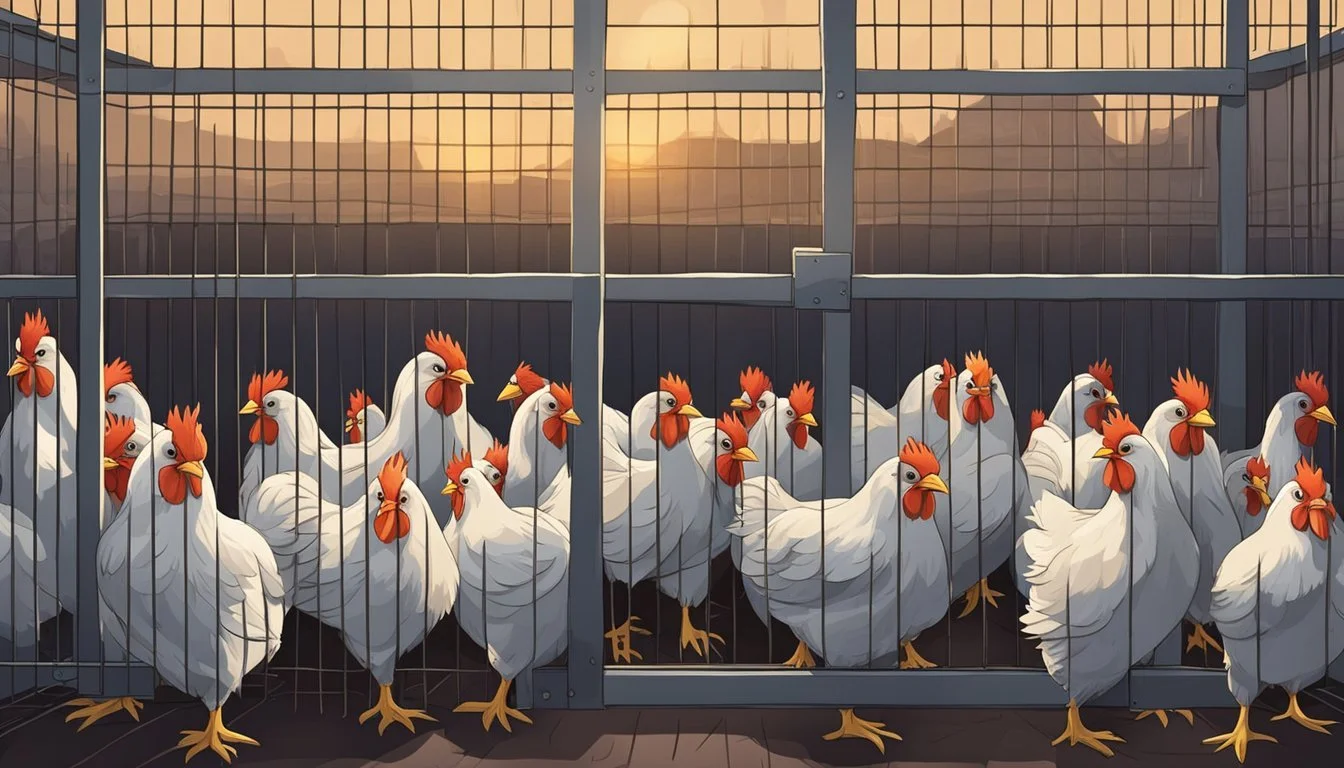How do I Keep My Chickens Safe During Fireworks?
Essential Tips for Protecting Your Flock
Chickens are generally hardy animals, but they can experience stress and fear in response to loud noises such as fireworks. Understanding this aversion is critical for backyard poultry enthusiasts who want to ensure their flock's well-being during noisy events. Fireworks can be particularly distressing due to their sudden, explosive sounds and bright flashes, which can startle and disorient chickens. The key to keeping chickens safe is minimizing their exposure to these stressors and creating a calming environment.
There are several measures chicken owners can implement to help their birds cope with the noise and light from fireworks and other loud events. One effective strategy is to provide a safe, secure, and familiar space for chickens to retreat to. Ensuring that their coop is well-insulated against sound and preventing them from seeing the flashing lights can greatly reduce their anxiety. Additionally, introducing background noise, such as calm music or white noise, can mask the frightening sounds of fireworks and help keep the flock calm.
Understanding Chicken Behavior
To ensure the well-being of chickens during loud events such as fireworks, comprehending their behavioral responses to stress and fright is crucial. Recognizing signs of distress in chickens can help poultry keepers take proactive measures to mitigate anxiety and keep their birds safe.
Stress and Anxiety in Chickens
Chickens experience stress and anxiety which manifest through various behavioral changes. When chickens are stressed, they may vocalize excessively, exhibit aggressive behavior, or conversely, become unusually quiet and withdrawn. Poultry owners should be aware of these signs as they indicate discomfort within the flock. Stress in chickens can weaken their immune system, making them more susceptible to diseases, and in prolonged periods, may lead to a decrease in egg production.
Common Fright Triggers for Poultry
Certain stimuli are more likely to cause fright in chickens, with loud noises at the forefront. Fireworks, thunderstorms, or unexpected clatter can lead to panic and erratic behavior. During such events, it is not uncommon to observe chickens pacing, attempting to flee, or piling up, which can cause injury or suffocation. Recognizing these common fright triggers can prepare chicken keepers to implement measures that prevent distress and protect their poultry during loud events.
Preparing the Coop for Loud Events
During loud events such as fireworks, ensuring your chickens' safety is paramount. Preparing the coop requires attention to structure, security, and environmental controls.
Reinforcing the Chicken Coop Structure
To safeguard chickens during uproarious events, one needs to reinforce the chicken coop. Hardware cloth is more durable than chicken wire and can be utilized to reinforce windows and any open spaces. Ensure that the coop is structurally sound, with no weak spots in the walls or roof that might be affected by concussive sounds.
Enhancing Coop Security Against Predators
Loud noises can startle wildlife, potentially leading them toward your coop. To protect your chickens from any curious or frightened wildlife, reinforce the coop with sturdy materials. Use hardware cloth instead of chicken wire, as it provides a more robust barrier. Double-check that all latches are secure and consider installing an extra layer of protection such as locks or predator-resistant fasteners.
Optimizing Coop Ventilation and Insulation
A properly ventilated and insulated coop can help dampen the sound of fireworks, providing a calmer environment for your chickens. Assess the ventilation to ensure there is adequate airflow, reducing stress and promoting a healthy atmosphere. In some cases, tarps can be draped over the coop to provide additional sound insulation without compromising the airflow. However, make sure that the ventilation is not completely blocked, as a fresh supply of air is vital for the chickens' well-being.
Minimizing Noise and Disruptions
To shield chickens from the stress of fireworks and loud events, it's essential to reduce exposure to noise and utilize strategic planning. These measures can significantly lessen the impact of sudden loud noises on the flock.
Using Sound-Proofing Materials
The strategic use of sound-proofing materials can greatly reduce the amount of noise that penetrates a chicken coop. Materials such as thick hay bedding can absorb sound, making the environment inside the coop quieter during loud events. Additionally, tarps can be draped over the coop to provide an extra layer of sound insulation. They should be securely fastened to ensure they do not flap in the wind, as this can create additional noise that may spook the chickens.
Planning for Fireworks and Events with Neighbors
Engaging with neighbors can lead to a cooperative approach to managing noise during planned events. Informing neighbors about the sensitivity of chickens to fireworks and loud noises can encourage them to be mindful of the flock's wellbeing. This communication may result in neighbors choosing to set off fireworks at a farther distance or opting for less disruptive celebration methods. Additionally, coordination with neighbors on the timing of events can allow chicken keepers to take preemptive actions to secure and calm their flocks before the noise begins.
Caring for Chickens During Stressful Times
Chickens can experience significant stress and anxiety during loud events such as fireworks. This section outlines practical steps to ensure their well-being during such times.
Creating a Calm Environment
To mitigate stress for chickens during loud events, providing a tranquil habitat is vital. This includes insulating the coop to buffer against noise, using materials that can dampen sound. A study highlights that noises above 85 decibels can cause stress in chickens, leading to issues such as decreased feed intake of up to 25%. Darkening the coop by covering windows can also help create a sense of security, making chickens less likely to react to the flashes of fireworks. Additionally, including elements such as rope swings or perches allows chickens to engage in natural roosting behaviors which can be calming.
Maintaining Routine and Diet
A stable routine and diet are essential for reducing the impact of stress on chickens. Ensure that feeding times are consistent, and the diet meets their nutritional needs to support their overall health and egg-laying capabilities. Keeping their water supply clean and full is critical, as hydrated chickens are better equipped to cope with stress. During stressful events, extra treats and familiar feed can also provide comfort and distraction.
Contingency Measures in Case of Escapes
Despite best efforts, extreme stress may lead to chickens attempting to escape. It is imperative to have contingency plans in place. This includes securing the coop and run with sturdy fencing and making sure it is clear of objects that chickens might use to escape. Regularly checking the integrity of the coop will help prevent any weak points from becoming escape routes. Furthermore, having a plan for quickly and safely gathering chickens if they do get out can reduce the risk of injury or loss, ensuring their rapid return to safety.
After the Event: Checking on Your Flock
Post-event care is crucial for ensuring that the chickens recover well from any stress or anxiety caused by fireworks or loud events. A thorough assessment of their health and behavior can indicate how they have been affected and whether any additional care is needed.
Health and Behavior Assessment
Immediately after the event, it's important to examine each chicken for physical injuries. Loud noises can cause panic, and in their haste to escape the perceived threat, chickens may accidentally harm themselves. Look for any signs of cuts, bruises, or limping.
Check their behavioral patterns as well. Chickens suffering from stress may display changes such as reduced appetite, lethargy, or aggression. Note any deviation from their normal behavior, as this could signal lingering anxiety.
Listen for abnormal respiratory sounds, like wheezing or coughing, which might suggest distress-induced respiratory issues. Ensure they are breathing normally and not showing signs of respiratory stress.
Finally, observe their interactions with other flock members. Chickens are social birds and stress can affect their social dynamics; look for signs of bullying or isolation which may need to be managed to restore the peace within the flock.
Long-Term Strategies for Chicken Safety
Implementing long-term strategies for chicken safety during fireworks or loud events ensures that chickens are not only protected during these occurrences but also maintain a secure and stress-free environment at all times.
Building Relationships with Neighbors
Building strong relationships with neighbors can be a key strategy in ensuring the safety of chickens during loud events. Neighbors who are aware and considerate of the chickens' presence may be more mindful of their activities, potentially reducing sudden, loud noises that could stress the poultry. They can serve as extra eyes and ears, alerting chicken owners to planned events that might necessitate special preparations.
Enhancing Chicken Coop Features
Chicken Coop Reinforcement Fortifying the coop with materials such as hardware cloth can prevent predators from taking advantage of the distractions caused by fireworks or loud events. Covering windows with this sturdy material while ensuring adequate ventilation safeguards chickens against potential breaches.
Soundproofing Measures To lessen the impact of loud sounds on chickens, adding sound-absorbing materials to the coop's interior can help muffle disturbances. Regular maintenance checks should be conducted to ensure these features remain effective and that the structural integrity of the coop is uncompromised.
By consistently engaging with neighbors and enhancing coop features, chicken keepers can provide a secure and tranquil environment for their flock. These proactive measures contribute to the overall well-being and safety of chickens regardless of external events.
Conclusion
In securing the well-being of chickens during fireworks or loud events, owners must adopt a proactive approach. Preparation is crucial. One should ensure their chickens are sheltered in a safe and secure environment to protect them from the alarming effects of the noise and lights.
Practical steps include:
Insulating the coop to reduce noise penetration while maintaining adequate ventilation.
Utilizing a radio or sound system to emit soothing sounds, thereby masking disruptive external noises.
Experiences recounted on forums, such as BackYard Chickens, attest to varying chicken responses to fireworks: while some may acclimate, others could remain perturbed. Therefore, if an owner notices their chickens exhibiting signs of distress, additional comfort measures should be taken.
Experts from Backyard Poultry highlight the importance of protecting poultry from the fallout of fireworks debris. Ensuring the coop is free from gaps that might allow debris to enter is a necessary precaution.
The avoidance of noise-induced panic within a flock not only protects the chickens' physical health, but also their mental well-being. Conclusively, meticulous preparation, combined with a calm and steady atmosphere, are imperative to safeguard chickens during such potentially stressful events.







